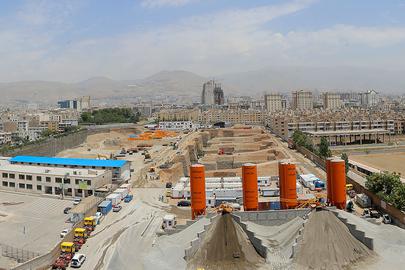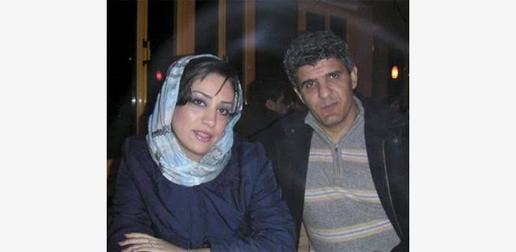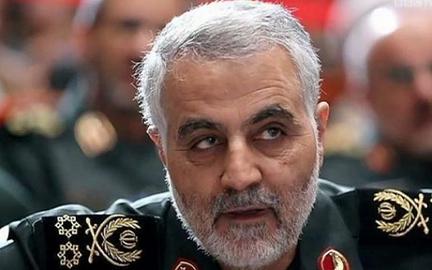On November 20, the United States Treasury Department added the name of Mahmoud Seif, the former CEO of Tejarat Almas Mobin Co, to its sanctions list. Seif is accused of using a subsidiary of his company, Pardazesh Tasvir Rayan Co. (Rayan Printing), to import equipment into Iran from Europe that was used to make counterfeit banknotes. In addition, he is accused of procuring arms for the Revolutionary Guards.
According to the US Treasury, the two companies established a network to print counterfeit Yemeni bank notes potentially worth hundreds of millions of dollars for the Revolutionary Guards’ expeditionary Qods Force. The Qods Force has been accused of supporting Houthi rebels in Yemen and passing the counterfeit money on to them.
In recent years, Rayan Printing has been active in range of different sectors and fields. In January 2014, it launched a production line for SIM cards and smart cards. Iranian media hailed the news as the first production line of its kind [Persian link]. At the same time, the company also announced it had the capability of producing holograms and banknote security threads and it was reported that it hoped to secure a monopoly in printing national ID cards.
The US Treasury also added Reza Heidari, the CEO of Rayan Printing, a position previously held by Mahmoud Seif, to its sanctions list. Prior to becoming Rayan Printing’s CEO, Heidari headed the Rassam Negar Javid (RNJ) company, which had imported equipment for producing smart cards from Germany in 2012.
Caught in Austria
Mahmoud Seif’s name has been linked to efforts to bypass sanctions against Iran before. In 2004, an undercover US operative caught Seif and his then wife Shahrzad Mir Gholikhan trying to buy 3,000 helmet-mounted military night vision systems in Austria. The operative arranged to meet them at a hotel in Vienna to show them a sample. Following the meeting, they were arrested by the Austrian police.
In 2011, several opposition media outlets outside Iran reported that a counterfeiting ring had been uncovered in Eastern Europe, and that Mahmoud Seif and his brother Hamid were involved. The two were also accused of drug smuggling and working with the Qods Force, though this news did not attract as much attention as the story about the night vision goggles had.
Before getting into the smuggling business to bypass sanctions, Mahmoud Seif was a member of the Revolutionary Guards. In 2016, Shahrzad Mir Gholikhan told IranWire that her ex-husband had lured her into illegal activities without her knowledge. “My ex-husband worked for the Revolutionary Guards and provided [former president] Rafsanjani with many services,” she said in an interview. When they were married, Seif took her to Austria for their honeymoon. “He told me to go with him to a meeting and translate for him,” she said. But, she said, “the meeting was a plan by the US and the Austrian governments to arrest us. In an exhibition in Germany, my ex-husband had negotiated with the Americans to buy night vision equipment. The process took two and a half years and in the end, the Americans designated Austria as the place for delivery.”
After their arrest, the couple spent 28 days in detention and 40 days in a hotel after being released on bail. Mir Gholikhan claims that the US agents decided not to pursue the matter, but she did not know why. “They sent us to Dubai,” she said. “In Dubai, Mahmoud was put in jail but after a while he was released.”
“Don’t Mention His Name”
Mir Gholikhan decided to travel to the US to “clear her name”, as she later claimed in a letter to the Miami New Times. When she arrived in Miami, five officers fingerprinted her, seized her passport and thousands of dollars in jewelry and took her to a Federal Detention Center. In the end, she was sentenced to five years in prison.
After serving her sentence, Mir Gholikhan returned to Iran and was appointed as director of public and international relations at PressTV, Iran’s English language TV channel. When Mohammad Sarafraz was appointed head of the Islamic Republic of Iran Broadcasting company (IRIB), he chose Mir Gholikhan as his “special inspector,” tasked with monitoring the activities of state television’s various departments.
But a month after her return to Iran, the Intelligence Ministry summoned Mir Gholikhan. They pressured her to sign a pledge that she would not write, give interviews or publish any videos about her marriage to Mahmoud Seif. But she did write a book, in which she mentioned Mahmoud Seif. As a result, the Revolutionary Guards’ Intelligence Corps summoned her for questioning, during which Mir Gholikhan said that the Guards intelligence officers treated her appallingly. “They interrogated me for nine hours,” she said. “They accused me of espionage, acting as an infiltration agent and of having illegitimate relationships.” They then pressured her to leave Iran. She tried to meet Ayatollah Khamenei to plead her case, with no success, but she said that she did meet with Mojtaba Khamenei, the Supreme Leader’s son. In the end, she was unable to prove her case, and was forced to resign. She then left the country and went to Oman. Her boss Sarafraz defended her and accused the Guards of acting “ridiculously” and “illogically.” This led to his dismissal as the head of IRIB.
Israeli Spy in the Revolutionary Guards?
As part of the controversy generated by Mahmoud Seif, the name of Reza Golpour came up. Golpour is currently under arrest in Iran on a charge of spying for Israel. Golpour had links with once-powerful former Revolutionary Guards figures, so his incarceration and the charges leveled against him could be a means of silencing him and preventing him from talking about Mahmoud Seif. In summer 2016, the hardliner website Ammariyon published a report on the connections between Seif and a person by the name of “Mohsen Sajjadi-Nia.” The report also mentioned the names of companies including Tejarat Almas Mobin.
It turned out that, as a holding company, Tejarat Almas Mobin was an umbrella company for a series of other business initiatives, including Rasa Tejarat Moin, Javid Rassam Negar, Mitra Railway Development Advisors and others — all of which function under the control of the Revolutionary Guards Cooperative Foundation.
In all of these companies, the name that crops up, either directly or indirectly, is Mohsen Sajjadi-Nia, not Mahmoud Seif.
In fact, “Mohsen Sajjadi-Nia” is actually a pseudonym for Mahmoud Seif.
In recent years, Mohsen Sajjadi-Nia and General Masoud Mehrdadi, known as the “Revolutionary Guards’ Financial Brain,” had used the Jasmine Financial Holdings company for all their activities. But, in May 2017, the situation changed, as General Mehrdadi and Mohsen Sajjadi-Nia were arrested for embezzlement. According to reports, at the time, General Mehrdadi was the vice president at the Revolutionary Guards Cooperative Foundation and Sajjadi-Nia was his deputy.
In September 2017, in an interview with the French newspaper Le Monde, Ali Motahari, the Iranian parliament’s Deputy Speaker, confirmed that a series of arrests had been carried out in a bid to fight corruption in the Revolutionary Guards. And, on September 13, the Financial Times reported that “at least a dozen Guards members and affiliated businessmen have been detained in recent months, while others are being forced to pay back wealth accrued through suspect business deals.”
The report said a “manager of a large holding company affiliated to the Guards” had been arrested “a few months ago, and cash worth millions of dollars was confiscated from his house,” according to a businessman who had worked with the Guards. It went on to say that “a brigadier general” who was also known as the “corps’ economic brain” — meaning Masoud Mehrdadi — had also been arrested this year, but released on bail, according to a “regime insider.”
Other reports also say that General Mehrdadi has been released but there have no reports about the release of Mahmoud Seif, aka Mohsen Sajjadi-Nia.
Disappearing Names
The official documents published by the Business Registration Organization give credence to these reports. On July 12, 2017, Tejarat Almas Mobin Company wrote to the registration organization, and removed the names of Mohsen Sajjadi-Nia and his company. This change coincided with the reports about his arrest.
The other change that happened concerned Jasmine Financial Holdings, with registration number 473022. While on August 30, 2016, the company had announced that Masoud Mehrdadi had been elected to its board of directors for two years, his name disappeared from the list of directors on June 24, 2017. The news about his arrest appeared around the same time.
Besides its international “ventures,” Tejarat Almas Mobin has been involved in a range of development projects, including Pardis Noor Housing Development Project in Tehran, which has been blighted by reports of illicit activities and dealings. In 2014, members of Tehran City Council demanded an inquiry into another project by the name of Mothers’ Park, but soon all controversy about the project died down, for one simple reason: These projects belong to the Revolutionary Guards.
When the US added Mahmoud Seif’s name to its sanctions list, it was of no particular significance. His name was already known. However, the other two names — Tejarat Almas Mobin and Rayan Printing — will prove to be problematic for the Revolutionary Guards. But they have a simple solution. The Guards’ Cooperative Foundation has the power to create new companies with new names and new people — or, instead, the old people with new pseudonyms. The mafia nature of the Guards means the corps is very skilled, and very experienced. And over the last year or so, it has enjoyed an even more hospitable environment in Iran than before — not least because President Trump’s policies are forcing the Guards and Rouhani’s government closer together.
visit the accountability section
In this section of Iran Wire, you can contact the officials and launch your campaign for various problems



























comments